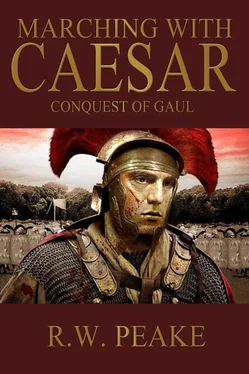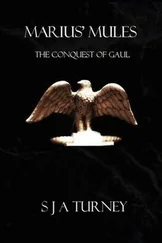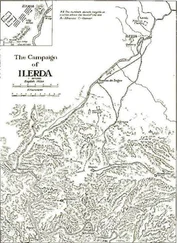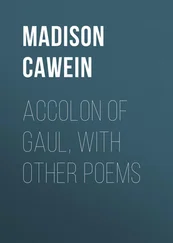R. Peake - Marching With Caesar - Conquest of Gaul
Здесь есть возможность читать онлайн «R. Peake - Marching With Caesar - Conquest of Gaul» весь текст электронной книги совершенно бесплатно (целиком полную версию без сокращений). В некоторых случаях можно слушать аудио, скачать через торрент в формате fb2 и присутствует краткое содержание. Жанр: Исторические приключения, на английском языке. Описание произведения, (предисловие) а так же отзывы посетителей доступны на портале библиотеки ЛибКат.
- Название:Marching With Caesar: Conquest of Gaul
- Автор:
- Жанр:
- Год:неизвестен
- ISBN:нет данных
- Рейтинг книги:3 / 5. Голосов: 1
-
Избранное:Добавить в избранное
- Отзывы:
-
Ваша оценка:
- 60
- 1
- 2
- 3
- 4
- 5
Marching With Caesar: Conquest of Gaul: краткое содержание, описание и аннотация
Предлагаем к чтению аннотацию, описание, краткое содержание или предисловие (зависит от того, что написал сам автор книги «Marching With Caesar: Conquest of Gaul»). Если вы не нашли необходимую информацию о книге — напишите в комментариях, мы постараемся отыскать её.
Marching With Caesar: Conquest of Gaul — читать онлайн бесплатно полную книгу (весь текст) целиком
Ниже представлен текст книги, разбитый по страницам. Система сохранения места последней прочитанной страницы, позволяет с удобством читать онлайн бесплатно книгу «Marching With Caesar: Conquest of Gaul», без необходимости каждый раз заново искать на чём Вы остановились. Поставьте закладку, и сможете в любой момент перейти на страницу, на которой закончили чтение.
Интервал:
Закладка:
Fortunately the third line moved quickly, forming up in a single line, angling across our rear partway up the hill to meet the threat posed by the Boii and Tulingi. Fighting in that area was ferocious, the Helvetii knowing this was their one and only chance to overwhelm us and destroy Caesar’s army. Understanding that as well, that knowledge kept us going through the day, the sun moving steadily towards its home in the west. Neither side would relent, both knowing the stakes, yet the bravery of the Helvetii was no match for the iron discipline and teamwork of the Legions, as we chewed them up like some huge beast will gnaw on its prey, spitting out heaps of dead and dying men in our wake, relying on the watches of drill that enable us to perform without any conscious thought. First position, bash with the shield, thrust while remembering to turn the hips, withdraw, recover. Over and over, variations on the same theme of killing, not thinking, just doing, ignoring the pain and fatigue in your body, knowing that by giving into it, you will not only shame yourself, you will cause the death of your friends and comrades. So you move forward, your mind empty of every thought that might distract you, and you kill, over and over. We were only vaguely aware of the struggle taking place behind us, while the third line stood firm, battered over and over as if by a huge wave, yet never giving in, never giving ground that might lead to the destruction of the army. Instead, slowly but surely, they began to advance on their foe, who in turn gave ground very grudgingly, at least at first. Then, the second Helvetian attack suddenly disintegrated, and quickly a retreat became a rout, with men running for their lives, heading to their last defense, the hill on which all the wagons gathered. The main force of the Helvetii, the force we were engaged with, having the advantage of being higher on the hill, was able to see the crumbling of the second attack. Seeing now that all was lost, the men in the rear of their formation began to stream away, seeking safety by fleeing the battle, but the men in the front lines had no such luxury. They understood that the instant they turned their back we would cut them down and this knowledge made them fight even harder, something that I did not think was possible until I saw it. They resisted in the manner of men who know that they are doomed, yet are determined to take as many of their enemy with them as they can and indeed, many of us fell, some to never rise again. One of them was Hirtius, our Tesseraurius who replaced Cordus, disemboweled by a spear. Thankfully, I did not see it happen, but it was a painful loss nonetheless. For my part, I do not know how many men I killed that day; I lost track around ten men, worrying me a bit because I had been told that when I sacrificed to the gods, being accurate was very important so one knew the size of the offering to give. We sensed more than saw the thinning of the force in front of us, until finally, there were no more men to kill; only then did we pause to stand there for a moment, chests heaving, standing in a heap of dead and wounded, trying to make some sense of what had happened. As I was catching my breath, I looked up in surprise to see that the sun was hanging low above the hills; this battle had lasted almost two full watches, and it was still not over.
Across the valley, on the other hill, the third line chased the Boii and Tulingi up to the wagon camp, where the Helvetii women and children were gathered in the center, huddled in terror as they awaited the inevitable outcome. Their warriors were on top of the wagons, and were reduced to hurling stones or whatever they could lay their hands on that would make a missile. Meanwhile the men from the third line were now being joined by the Cohorts of the second line, sent to aid their comrades.
“Should we join them?” I wondered aloud, not that I had any desire to. I was exhausted, and killing women and children was never my idea of fun. However, the wagons also meant booty, so that was a temptation.
“We haven’t been given any orders to,” answered the Pilus Prior, who was standing caked in blood, a long cut running across his cheekbone, the gore having obscured the lower part of his face. “First we need to see to our own wounded. Then if it looks like they need help, we’ll head over there.”
Immediately we turned to the task; I found Scribonius, who was alive, though he was in grave condition, having taken a spear thrust all the way through his left shoulder, just above the collarbone, the point having passed all the way through. This could be a good thing, as long as none of the material from his tunic, or even worse, none of the links of his armor had been driven into his body and were still in there. If that was the case, he would die a horrible, lingering death, the wound putrefying and poisoning the rest of his body. He was conscious, but just barely, and I knelt beside him, trying to give him a smile.
“I’m sorry if I hurt you when I dragged you out of the way,” I told him, drawing a ghost of a smile.
“Pullus, I hate to tell you this, but I don't think a career as a medici is in your future. You handle your patients much too roughly.”
I laughed at his attempt at a joke then promised to come see him as soon as we were settled in camp and then he was carried down the hill by the medici . Calienus was wounded as well, although he could walk with some help, having taken a spear thrust to the thigh. It missed the bone, but when pulled free, it had torn a hunk of the muscle so that it was hanging loose and would have to be sewn back together. I could not help wondering if he would be crippled, but he was too tough for that. Once we were done, we turned our attention back to the far hill. The sun was just sinking below the edge of the horizon, although it would remain light for a couple of more hours, and the order was passed for us to re-form to march over to the hill and help mop up the last resistance, which we did, albeit a little reluctantly. At least, some of us were reluctant; Didius was literally smacking his lips at the prospect of plundering the wagons, and……other things. Part of his character was such that he took no pleasure in coupling with a woman if she were willing, although I guess it is not hard to see why. Even with the whores, he garnered a reputation for enjoying inflicting pain, so soon enough, even women who are paid to be willing were giving him a wide berth, limiting his opportunities for pleasure to moments such as these. Watching him with undisguised loathing as he chattered about what was to come, it made me wonder about the justice of a world where men like Scribonius were struck down while Didius managed to survive without a scratch. I will give him this much; he was a born survivor, and would prove extremely hard to kill.
Arriving at the wagons, it was a scene of desperate fighting. Those Helvetii men left knew they were fighting to save their women and children from slavery and worse, not to mention all their worldly possessions that were contained in the wagons, and this gave them an endurance to match their desperate courage. This was no battle; this was a brawl of the first magnitude, with small groups of men fighting viciously among the wagons, while the women looked on, or in many cases, tried to help the men fight. We were sent around the hill to complete sealing it off, and soon moved up to the wagons, just as the last of the light was fading. Despite our fatigue, we were required to give one last supreme effort as we engaged with the Boii and Tulingi warriors, who were literally throwing themselves off the top of the wagons and down onto us, sometimes knocking us to the ground, where we would roll around and fight like animals. Very quickly I found Vibius and myself embroiled in a desperate struggle with a group of four men, a pair of them teaming up to kill each of us. If they had worked as four against one, or even three against one, with the fourth trying to occupy one of us, they would have made short work of the thing. Instead, they chose this method and paid the price for it with their lives. At one point, I was rolling around on the ground with the last man, trying to avoid his hand as it clawed at my eyes, using my greater weight to pin him while I frantically grabbed for my dagger, having lost the grip on both my sword and shield. Finally pinning him underneath me, I drove the blade up under his ribcage, our faces no more than a couple of inches apart, then watched the life drain from his eyes. This was the closest I had ever been to a man I killed, and found it a profound and somewhat disturbing experience. Finally clearing the wagons, we then moved into the circle to see that the line was now breached in several spots, and Legionaries were rushing about in a frenzy of looting, rape and killing. The screams of women as they were violated began to fill the air, mingled with the cries of despair from young children forced to watch. Not all of the women passively accepted their fate, however. A good number of them fought viciously, clawing, biting and spitting at anyone who came near, and that was how they died, their faces frozen in expressions of hatred, their lips curled back from their teeth like a cornered wolf. The Centurions began trying to restore order, but between the darkness and the manner in which the day’s fighting had gone, the Legionaries were wild with bloodlust and the desire to rape, pillage and burn. Vibius and I contented ourselves with looting a couple of wagons, finding hoards of coins and jewelry, along with other odds and ends that we thought would fetch a price when we sold them. Someone set fire to a couple of wagons, probably more to provide light than for anything else, the flickering flames casting an illumination on the scene that fit the nature of what was happening. It did not take long for men like Atilius to sniff out the wine that was part of the cargo on most of the wagons, and soon enough, men were staggering around drunk, making restoring order all the much harder.
Читать дальшеИнтервал:
Закладка:
Похожие книги на «Marching With Caesar: Conquest of Gaul»
Представляем Вашему вниманию похожие книги на «Marching With Caesar: Conquest of Gaul» списком для выбора. Мы отобрали схожую по названию и смыслу литературу в надежде предоставить читателям больше вариантов отыскать новые, интересные, ещё непрочитанные произведения.
Обсуждение, отзывы о книге «Marching With Caesar: Conquest of Gaul» и просто собственные мнения читателей. Оставьте ваши комментарии, напишите, что Вы думаете о произведении, его смысле или главных героях. Укажите что конкретно понравилось, а что нет, и почему Вы так считаете.












